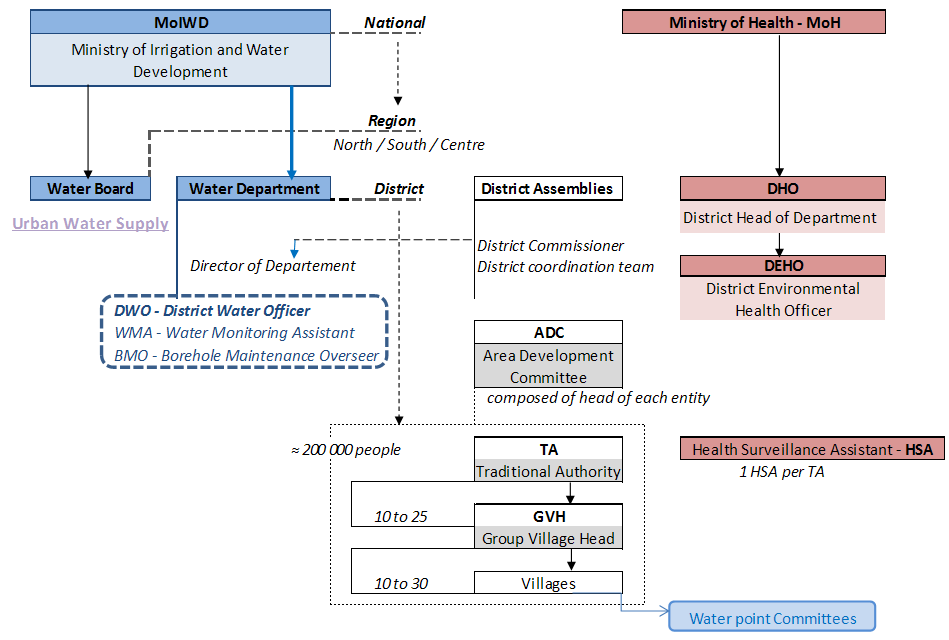At national level, the Ministry of Agriculture, Irrigation and Water development is responsible for water supply and sanitation services[1], and is itself divided into different Departments:
The Water Supply and Sanitation Department oversees formulation of sector policies, sets technical standards and procedures for the provision of services; plans, designs the construction of water supply schemes; and trains communities in proper management of water supply schemes.[2]
[1] The Ministry of Health is responsible quite separately for sanitation, as well as for hygiene education. Integration of work in these areas is therefore a major challenge.
[2] Water Boards: are in charge of urban water supply.
At district level, The Water Department headed by the District Water Officer is the entity giving the direction and strategies for development of water access. It is evaluating where the needs and the priorities are, deciding of new infrastructures.
WMAs (Water Monitoring Assistants) are in charge to train and monitor Water Point Committees. Inter Aide, BASEDA and TIMMS are collaborating with them for the supervision of the activities of Area Mechanics (the idea is to progressively organize a transfer of competencies).
BMOs (Borehole Maintenance Overseer) – a position which does not exist in all districts – are in charge of managing construction of boreholes and major rehabilitation. They are also supervising and giving support to campaigns leaded by other operators (NGOs…). They can advise Area Mechanics for the repairs.


